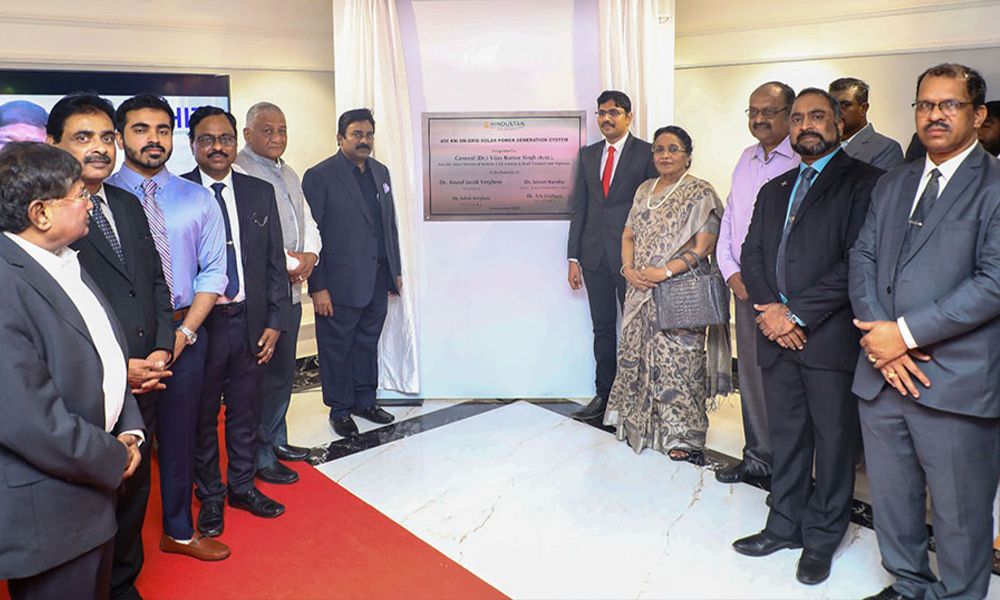








Be a part of an ecosystem that fosters exploring and shaping your future through transformative education




































A prestigious and recognized institution since 1985, located in Chennai, India, offering a wide spectrum of UG, PG, Diploma, Research and Doctoral Programs in diverse fields

Dr. Anand Jacob Verghese assumed leadership of the Hindustan Group of Institutions in 2006 following his father's untimely demise. Guided by his mother, he has transformed the institutions, extending technical training and education from primary to higher levels by establishing three international schools in Chennai. Under his management, Hindustan College of Engineering attained University status in 2008, and Dr. Anand Verghese has played a key role in fostering collaborations with esteemed global educational institutions.

Enriching curriculum with dedicated faculties
12:00 p.m. – 3:00 p.m.

Engaging campus life for personal growth
12:00 p.m. – 3:00 p.m.

Promising career with guaranteed placements
12:00 p.m. – 3:00 p.m.

Empowering dreams with financial assistance
12:00 p.m. – 3:00 p.m.

Hindustan provides top-notch facilities for students accommodating tech-savvy classrooms, dining facilities, sports amenities, vast libraries, transportation services, banking & ATM facilities, auditoriums and a green campus

Our esteemed institution offers a range of specialised schools and programs equipped with cutting-edge resources and expert faculties, designed to cultivate critical thinking, innovation and holistic development

Hindustan opens doors to quality education for all students through scholarship programs based on merit, sports, and financial need helping students pursue their academic goals

Prestigious global companies like Amazon, Infosys, Accenture, Zoho and more, actively recruit our talented graduates every year, building exceptional career pathways for our students

Students are empowered through extensive training workshops, skill upgrades and mock assessments, for entering into the professional world. Our partnered leading industries provide successful career opportunities

Discover the achievements of our dear students and explore how Hindustan has shaped their exceptional futures through inspiring stories shared by our dear students

The Student-Parent Portal of HITS is an innovative online platform fostering transparency between the institution and parents, serving as a vital channel for keeping parents posted on various aspects of their child's academic journey.

The Learning management systems of HITS is a commitment to e-learning education by harnessing the power of open-source technology, providing dynamic courses, and customizable learning environments and serving as a cornerstone for empowering educators and students.

From advanced research to social initiatives, our projects span innovation, research and industry collaborations in bringing positive change locally and globally while nurturing tomorrow's leaders

Our college champions academic research in different fields with resources, fostering student coalitions on innovative research projects and contributing effective findings and developments for the future world

Hindustan houses diverse research centers spanning advanced technology, sustainable energy management, networking, automotive electronics, and robotics. These centers pioneer groundbreaking innovations and drive impactful advancements

National Cadet Corps Club at Hindustan signifies leadership and discipline. Our focus on military drills and community services prepares cadets for successful careers in defence forces

Dedicated to service and social empowerment, the National Service Scheme at Hindustan conducts awareness campaigns, cleanliness drives and educational programs, cultivating social responsibility and volunteerism

Our Youth Red Cross club embodies humanitarian values through blood donation camps, health awareness campaigns, and disaster relief initiatives, nurturing compassion and empathy in students
At Hindustan College, management and leadership form the cornerstone of our success. The unwavering commitment to academic excellence and holistic student development are our fundamental values. Through strategic planning and forward-thinking approaches, we prioritise innovation, global relevance and student-centric growth. Our guidance fosters a dynamic learning environment, encouraging innovation and aligning programs with industry needs. Our visionary leadership empowers us to cultivate academic prowess, emphasising values, ethics and social responsibility for a meaningful society.

